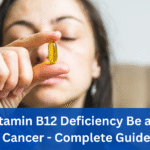Hair is often seen as a reflection of our overall health, influencing not just our appearance but also our confidence. As hair loss and thinning become increasingly common concerns for both men and women, the search for solutions has intensified. Among the many nutrients promoted for hair health, biotin stands out as a popular choice. But what exactly is biotin, and how significant is its role in hair growth?
This article delves into the science behind biotin, its connection to hair health, sources of biotin, and whether supplementation is really the miracle cure it’s often portrayed to be.
What is Biotin?
Biotin, also known as vitamin B7 or vitamin H, is a water-soluble B-complex vitamin. It plays a crucial role in helping the body convert food into energy. Specifically, biotin acts as a coenzyme in the metabolism of fats, carbohydrates, and proteins — processes essential not just for energy production, but for the health of your skin, nails, and hair.
Since the human body cannot synthesize biotin on its own, we must obtain it through diet or supplementation. Fortunately, biotin is found naturally in a wide variety of foods.
How Biotin Supports Hair Growth
Biotin is often associated with hair growth for several reasons:
1. Enhances Keratin Infrastructure
Keratin is the main structural protein that makes up hair, skin, and nails. Biotin plays an important role in keratin production, supporting the creation of stronger, more resilient hair strands. Without sufficient biotin, the structure of keratin can weaken, potentially leading to brittle hair and breakage.
2. Supports Hair Follicle Health
Healthy hair starts with healthy follicles. Biotin aids in maintaining the health of hair follicles by ensuring that the scalp and roots are nourished and supplied with enough energy. This process helps to sustain the hair’s natural growth cycle, reducing instances of thinning and fallout.
3. Helps Combat Hair Loss Linked to Deficiency
Although biotin deficiency is rare, when it does occur, one of the key symptoms is hair thinning or hair loss. In such cases, biotin supplementation has been shown to restore hair health and promote regrowth. However, it’s important to note that supplementation is most effective in individuals who are actually deficient in biotin.
Scientific Evidence: What Research Says
While biotin’s role in hair health is biologically plausible, the scientific evidence supporting the use of biotin supplements for hair growth in healthy individuals is still limited.
A few small-scale studies have demonstrated improvements in hair health with biotin supplementation:
-
A 2015 study published in the Journal of Clinical and Aesthetic Dermatology showed that women with self-perceived thinning hair who took a marine protein supplement containing biotin experienced significant hair growth compared to a placebo group.
-
Another 2012 study found that oral biotin supplementation improved hair growth in children with uncombable hair syndrome, a rare disorder.
However, it’s crucial to understand that many of these studies involved participants with underlying conditions that might have caused biotin deficiency. There is less evidence to support the use of biotin supplements in individuals with normal biotin levels.
Signs of Biotin Deficiency
Although rare, biotin deficiency can happen, particularly among individuals with:
-
Genetic disorders affecting biotin metabolism
-
Chronic alcohol use
-
Pregnancy
-
Long-term use of antibiotics or anti-seizure medications
Signs of a biotin deficiency may include:
-
Hair thinning or hair loss
-
Brittle nails
-
Skin rashes (especially on the face)
-
Depression or lethargy
-
Neurological symptoms like numbness and tingling
If you experience these symptoms, it’s important to consult with a healthcare provider for proper diagnosis and treatment.
Natural Sources of Biotin
The good news is that many foods naturally contain biotin, making it easy to maintain healthy levels through diet alone. Some of the best sources include:
-
Egg yolks (ensure they are cooked to deactivate avidin, a protein that hinders biotin absorption)
-
Nuts and seeds (especially almonds, walnuts, and sunflower seeds)
-
Legumes (such as peanuts and soybeans)
-
Whole grains (like oats and barley)
-
Organ meats (liver and kidney)
-
Salmon and other fatty fish
-
Avocados
-
Bananas
-
Mushrooms
A balanced diet rich in these foods typically provides enough biotin for most people.
Should You Take Biotin Supplements for Hair Growth?
If you have a confirmed biotin deficiency, supplementation can be highly beneficial, often leading to noticeable improvements in hair, skin, and nails. Biotin supplements are widely available over the counter, typically in doses ranging from 1,000 to 10,000 micrograms.
However, for individuals without a deficiency, the benefits of taking extra biotin are less clear. While biotin supplements are generally safe, taking extremely high doses without medical supervision can sometimes interfere with lab test results, leading to misdiagnoses.
Thus, it’s advisable to consult a healthcare provider before starting biotin supplements, especially if you are taking other medications or undergoing medical testing.
Other Factors That Affect Hair Growth
While biotin is important, it’s only one piece of the puzzle when it comes to hair health. Other nutrients like iron, zinc, vitamin D, and protein also play critical roles in maintaining strong and vibrant hair.
Additionally, lifestyle factors like stress, hormonal balance, scalp health, and genetics significantly impact hair growth. A holistic approach — including good nutrition, proper hair care, stress management, and medical evaluation when necessary — is the best way to support long-term hair health.
FAQs: Role of Biotin in Hair Growth
1. What is biotin and why is it important for hair growth?
Biotin, also known as Vitamin B7, is a water-soluble vitamin that helps the body metabolize fats, proteins, and carbohydrates. It supports the production of keratin, the key protein that makes up hair, promoting stronger and healthier hair strands.
2. Can biotin really make my hair grow faster?
Biotin can help improve hair strength and health, especially if you have a deficiency. However, for individuals with normal biotin levels, taking extra biotin may not necessarily speed up hair growth significantly.
3. How do I know if I have a biotin deficiency?
Signs of biotin deficiency can include hair thinning, hair loss, brittle nails, skin rashes, fatigue, and mood changes. A healthcare provider can diagnose a deficiency through symptoms and, if needed, lab tests.
4. What are the best natural sources of biotin?
Foods rich in biotin include egg yolks (cooked), nuts and seeds, salmon, avocados, legumes, whole grains, and organ meats like liver.
5. Are biotin supplements safe to take?
Biotin supplements are generally considered safe for most people. However, very high doses can interfere with lab test results, so it’s best to take them under medical guidance.
6. How much biotin should I take for hair growth?
The recommended daily intake for adults is around 30 micrograms. Many hair supplements contain much higher doses, but unless you are deficient, mega-doses may not offer additional benefits.
7. How long does it take to see results from biotin for hair growth?
If biotin supplementation is effective for you, noticeable improvements may take 3 to 6 months, as hair growth is a gradual process.
8. Can taking too much biotin cause side effects?
While biotin is water-soluble and excess amounts are usually excreted, extremely high doses can cause skin rashes, digestive upset, and interfere with certain blood tests.
9. Is biotin alone enough for healthy hair?
No. While biotin is important, healthy hair growth also depends on other nutrients like iron, zinc, vitamin D, and protein, as well as overall health and good hair care practices.
10. Should I talk to a doctor before starting biotin supplements?
Yes. Especially if you have health conditions, take medications, or plan to undergo lab tests, consulting a healthcare provider ensures safe and appropriate supplementation.
Conclusion
Biotin is an essential vitamin that supports the body’s energy metabolism and strengthens the structure of keratin, promoting healthy hair, skin, and nails. For individuals with biotin deficiency, supplementation can lead to marked improvements in hair growth and strength.
However, for most people who are not deficient, the evidence supporting biotin supplements for hair growth is limited. Maintaining a balanced, biotin-rich diet and taking a comprehensive approach to overall health are the best strategies for achieving strong, beautiful hair.





